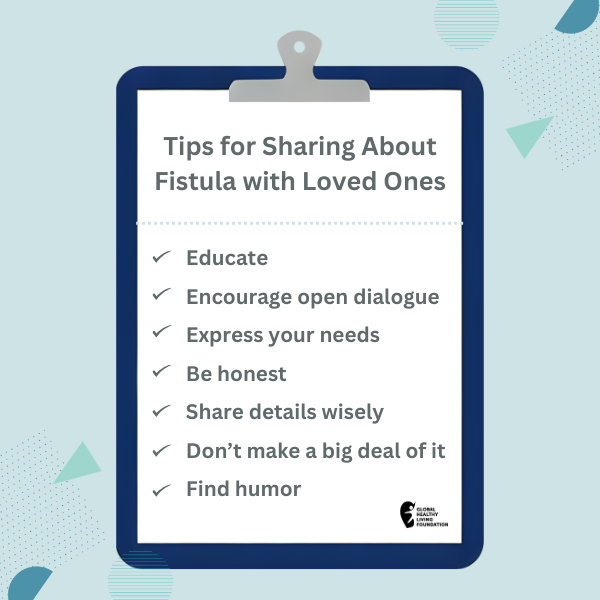In honor of World IBD Day, dietitians from three different continents share tips on managing diet and inflammatory bowel disease (IBD).
WHAT THE PRIME MINISTER OF JAPAN TAUGHT ME ABOUT NAVIGATING MY ‘INVISIBLE’ CROHN’S DISEASE AT WORK — AND IN LIFE
WHAT THE PRIME MINISTER OF JAPAN TAUGHT ME ABOUT NAVIGATING MY ‘INVISIBLE’ CROHN’S DISEASE AT WORK — AND IN LIFE
August 31, 2020
Zoe Rothblatt

One of my invisible illnesses — Crohn’s disease — just became a bit more visible recently when Japanese Prime Minister Shinzo Abe announced he would resign from his position due to his struggles with ulcerative colitis.
Ulcerative colitis and Crohn’s disease are both considered forms of inflammatory bowel disease (IBD), which is an autoimmune disease of the gastrointestinal tract defined by chronic inflammation that causes sores (ulcers) along the lining of the GI tract and rectum. The resulting symptoms — which include abdominal pain, diarrhea, weight loss, and fatigue — can be severely debilitating, both physically and emotionally. Unfortunately, there is no cure for IBD, so patients try to manage the disease through medication, lifestyle changes, and sometimes surgery.
According to the New York Times, Prime Minister Abe said in a news conference that doctors told him a few months ago they found signs that his ulcerative colitis had relapsed. He said he had lost much of his strength and he was stepping down now so that he could receive treatment with a new medication.
The Challenges of Working with IBD
Most people with IBD are able to successfully hold a career and participate in the workforce, like Shinzo Abe did as the longest-serving prime minister in Japan’s history. However, when the disease is flaring, its symptoms can lead to reduced productivity and increased absence from work. This can cause stress and in turn exacerbate IBD symptoms, creating a vicious cycle.
Several research studies have found that overall, an IBD diagnosis increases the risk of disease-related work disability during a patient’s lifetime. One study from Norway that followed hundreds of IBD patients over the span of 10 years found that patients diagnosed with ulcerative colitis or Crohn’s disease were nearly twice as likely to be on disability pension compared to the general population.
As someone who has had IBD for five years now, I can say that the impact of this disease ebbs and flows. It is hard to have expectations with such an unpredictable disease that has no cure. While many days can go by and I can start to feel normal because I barely notice my Crohn’s, it can come roaring back just as quickly as I forgot I had it.
All the while, my Crohn’s is invisible to everyone around me. My best and worst days can look just the same to outsiders. And while part of this is due to the invisible nature of the disease, it is also because I hide my symptoms to quietly fit in with the rest of my healthy peers.
I often look to my friends with IBD for advice, tips, understanding, and camaraderie. And while this satiates my need for support, it doesn’t give widespread recognition to our struggles. To have a world leader open up about health struggles is just the kind of role model we need to help others understand how IBD can take a toll — sometimes a severe one — on our everyday lives.
Raising Awareness of Life with IBD
Shinzo Abe’s resignation represents a lot for the IBD community and the chronic disease community at large. The prime minister brought awareness to our invisible disease and the challenging experience of living with IBD.
It is much more than just a “bathroom disease.”
This awareness helps dismantle the isolation of having a chronic illness. His decision also proves that we must value our health and make it a priority, which is often easier said than done.
Whenever my IBD becomes overwhelming, it feels like an emotional battle of admitting defeat to my disease. Witnessing a world leader step down to prioritize health reminds me that doing this is not admitting defeat, but rather taking charge of the fight.
Every May, patient organizations across the world participate in World IBD Day. This past May, World IBD Day, coordinated by European Federation of Crohn’s & Ulcerative Colitis Association (EFCCA), addressed the topic of raising awareness on work life and IBD. This theme was an acknowledgment of the impact that IBD can have on one’s professional life. Who knew that just months later, a public figure would be an example to the world of how disruptive IBD can be to one’s work life?
Taking time off or stepping down from your job like Prime Minister Abe did is not always a viable option for people living with IBD or other chronic, invisible illnesses. But not taking care of your health isn’t an option either when you have IBD. Over the past few days, I’ve spoken with other IBD patients about managing IBD in the workplace. I asked them how they cope and how they handle talking about their condition with others.
Here’s a sampling of their advice, which is similar to the recent actions of Japan’s prime minister. Focus on open communication and recognizing your needs.
Needs matter
“I’m proactive about telling my colleagues about my needs if it will get in the way of my work. While I usually don’t disclose many details of my condition, it comes up when food is involved, and I’m asked about dietary restrictions.”
Speak up
“If I am going through a flare, I will try to let my supervisors know in case I end up needing to take time off. I find that if I am upfront and not uncomfortable talking about it, my supervisors and colleagues won’t be either.”
Be candid
“Be honest with work about your IBD. When colleagues know what you are dealing with, they are more likely to be understanding. If you don’t feel well and can easily complete your tasks remotely, ask to work from home for the day.”
Be prepared
“I am always prepared for what may come throughout the day. I pack my bag with snacks, water, and my medications. When my pain is very bad, I often use a stick-on heating pad that is very discreet and helps me get through the day.”
Put yourself first
“When I’m going through a flare, I acknowledge my physical limits concerning work. Typically, I try to be a team player, but when I’m sick I’m less inclined to pick up an extra shift or stay late nights ‘to get the job done’ because I know I need all the off-time I can get to work on getting better. I will say, prioritizing yourself is significantly easier to do when you work with people who understand your health challenges and are willing to support you through it.”
Get More Involved with Patient Advocacy
The 50-State Network is the grassroots advocacy arm of CreakyJoints and the Global Healthy Living Foundation, comprised of patients with chronic illness who are trained as health care activists to proactively connect with local, state, and federal health policy stakeholders to share their perspective and influence change. If you want to effect change and make health care more affordable and accessible to patients with chronic illness, learn more here.
Høivik ML, et al. Work disability in inflammatory bowel disease patients 10 years after disease onset: results from the IBSEN Study. Gut. March 2013. doi: http://dx.doi.org/10.1136/gutjnl-2012-302311.
Rich M. Shinzo Abe, Japan’s Longest-Serving Prime Minister, Resigns Because of Illness. The New York Times. August 28, 2020. https://www.nytimes.com/2020/08/28/world/asia/shinzo-abe-resign-japan.html.
SUBSCRIBE TO GHLF
RELATED POST AND PAGES
_
Was this article helpful?
YesNo




